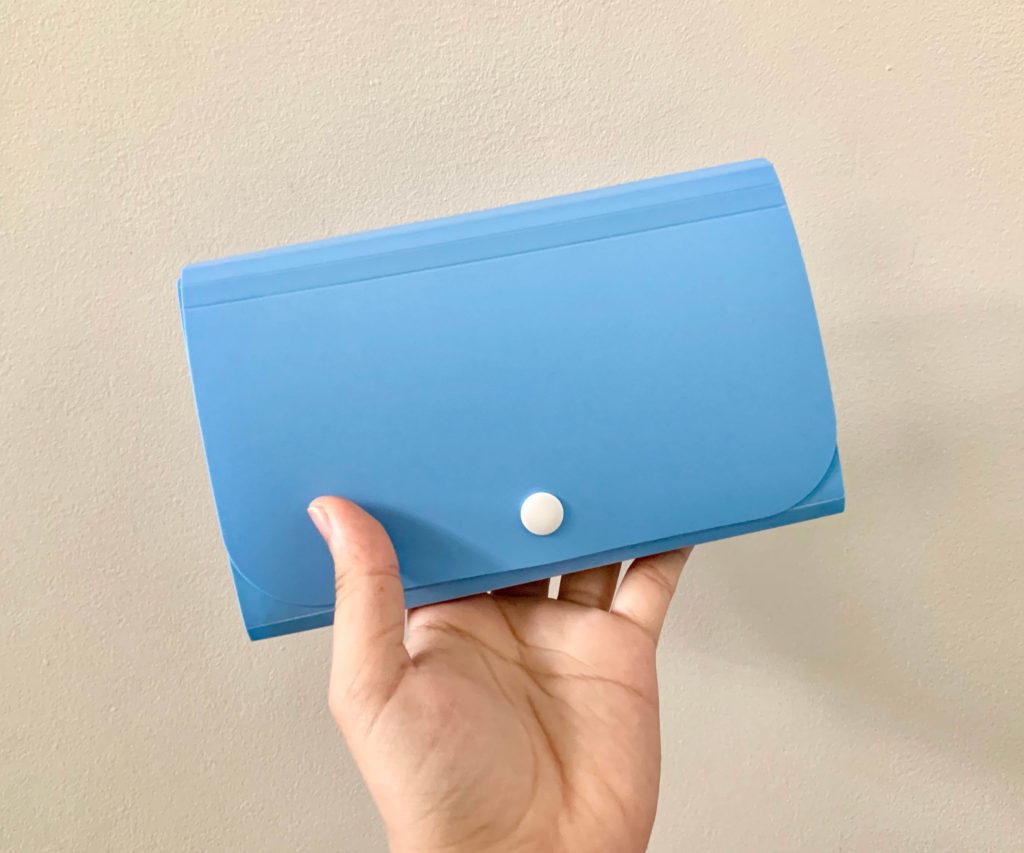Are you looking for ways on how to save money as a college student? I got you! In this article, I’ll be sharing several ways on how you could keep extra pennies in your pocket.
Contents
How to save money as a College Student
Setting my foot in another country is a mere dream for so long. I used to watch the Instagram stories of my block mates and hearing their adventures when they travel with their families. Although traveling the world has always been on my bucket list, I believe—back then that not everyone can do it. Considering our financial situation, I’ve come to accept that maybe it’s not meant for me. Fast-forward to June 2019, I’ve never imagined I could give myself the best graduation gift ever—my first international travel.
Many people wondered how I shouldered all the expenses of my trip (yes, everything came from my savings). From visa processing, flight tickets, accommodations, and pocket-money, I fulfilled my dream without being broke financially.
For four years inside the university, I’ve experienced having little to no money and I’m TIRED of it. So, I tried and tested various methods to save money. It’s been a roller coaster ride to finally understand what works for me.
I’m writing this to help YOU make that lifelong dream too! Or, maybe just save up for future purposes (good job). Whatever it is, please do note that everything under this article is solely based on my experiences.
This is to show you that everything is possible if we find ways to make things happen (and yes to traveling!)
Note: I’ll be sharing my college financial situation to set examples per subheading.
Alright! Here are 14 ways on how you could save money as a college student.
Motivate yourself to start saving
Have you heard of the Incentive Theory of Motivation? It explains how our behaviors are greatly influenced by our desired outcomes. An example is everyone can save money, but not everyone has the same reason for doing it. Different factors motivate us to perform certain behaviors. Applying it to saving money, understanding your motivation is the first step.
Are you doing it for your holiday vacation? To have an emergency fund? Or to spend weekend getaways with your friends? There are no right and wrong answers. To start saving is to bring yourself to commit. Don’t save just for the sake of having money, instead understand your motivations and make it a habit.
Set your goals
It’s important to save money with your rules. Consider your situation and make realistic goals that work for you.
Case study: The first challenge I’ve attempted was to save 200 pesos a week ($4). My daily allowance was 300 pesos during freshman year and I couldn’t save money because I spent most of it with my transportation fees. Here’s a breakdown of my expenses:
| Tricycle (special | 80 | X 2 |
| Bus fare | 48 | X 2 |
| Jeepney fare | 8 | X 2 |
| Total | 272 pesos/ day |
I’m from Laguna and commuting to and from Manila is part of my daily routine. I have a 7-11 am class schedule so I need to wake up at 2:30 am to cook and eat breakfast then, go to school. I opt to ride special tricycle services for convenience (to get more sleep), but it costs more. With this, I’ve spent all my money down to the drain. The challenge was impossible, leaving me with no choice but to set a lower goal that works for my situation.
Things were different during my sophomore year when I changed my routine and finally afford to complete the challenge. Therefore, don’t pressure yourself to save up to a certain amount that’s not within your reach. Our goal is to save wisely through habit. Work on your own pace and consider your situation.
Share your budget goals to your friends
Who says saving is a one-man work? A very helpful way to lessen your expenses is to live by what you can afford. Being open about your financial situation will let your friends add a little push and support to stick with your goals. Also, they could be your financial checkers by limiting your choices in terms of food and other things. Remember, money won’t matter to true friends because they value relationships. I bet they’ll be supportive and understanding.
Sort everything you’re planning to buy in 2 categories: wants and needs
You’re walking and came across a cute high lighter inside a store. You want it, but you remembered the pile of unused color pens and Stabilo sitting in your room. Question: Is it a want or a need?
Labeling your wants and needs will let you drop unnecessary purchases. You may think, “It’s easy for you to say because you’re a low maintenance person.” Well, yes. It’s easy for me because I don’t spend much on myself unless I NEED it. But, I’ve been telling this to my friends and it helped them narrow down their expenses and cut their bad spending habits. There’s no harm in trying, right?
Split-up your money and put it on designated places (cash and envelopes)

Are you an organized person or someone crazy for sorting (planning) things out? Good news for you! Another way to control your urge to spend ALL your money is to divide it ahead of time. PLANNING is the key here, so think about your spending habit. You may choose to do weekly or monthly depending on your comfort.
Case study: I compared my savings when I used to put everything inside my wallet versus when I allocated an amount to a certain cost. The result is, dividing my money with the exact amount consistently made me aware of the ins and outs of money in my pocket. It helped me check my habits and control myself from the temptations (gadget accessories and decorative stuff in my case). You might encounter some deep urge to sneak or get money from other portions here, so make sure that you adjust everything according to what works for you.
Besides, creativity works in this method too. I made a savings tracker using small brown envelopes and hang it on my door. Every time I see it, I feel motivated and proud of myself. Also, I used to slip money in unexpected places such as inside my Thor hammer, guitar case,. Secret pockets in wallets work too!
Live below your actual allowance
This is my favorite tactic as it is the most effective for me. “Live like a pauper” that’s what a financial advisor said in a seminar I accidentally attended. True enough, conditioning yourself to live below your allowance will keep you from spending too much. In line with this are:
- Cut down unnecessary expenses
- Set aside 1/3 of your allowance for an emergency fund (that you will never touch unless it’s an actual emergency)
- Strategize your money handling
Case study: I lived in a dormitory during my junior year. My weekly allowance was 1,500 pesos ($30), but I conditioned myself only to use 1,000/week maximum ($20).
Actual allowance: 1,500 pesos
500 pesos ($10) ➡ emergency fund
500 pesos ($10)➡ food and living expenses
another 500 pesos ($10) ➡ others (coffee, leisure, etc.)
With my 1,000 pesos, I was able to save half of it because I rarely eat out and buy things for myself. Bringing me to save an extra 300-500 pesos a week (total of 800-1,000 pesos savings)
Cook your meals rather than eating out
Many university students (including me), eat out in restaurants and fast-food chains for convenience. But as much as possible, I cook my meals to avoid spending too much money on food. The major reason is first, I’m not a fan of fast food since my sophomore year (I became health conscious). And second, it’s cheaper if I prepare my food.
Although this might be hard for those who don’t cook or have a busy schedule, again, planning is involved. I tried various methods to prepare my meals amidst my busy schedule (we can talk about time management of a low maintenance person in a different article) and the most effective for me is to think about my week schedule ahead of time. It helped me plan well for my grocery shopping (once every 2 weeks). If you try cooking your meals, continue reading this section.
Plan, make a grocery shopping list and compare prices
For my grocery list, I always choose a dish that costs less, satisfies my cravings, and has lots of nutrients. Thus, I spend money on vegetables (potatoes, carrots, onion, etc.), oatmeal, cereals, etc. I avoid buying processed food because it’s not fresh and it costs more than what you can get from it. I recommend cooking, home food and part it out for the week.
Opening a savings account
Opening a savings account is necessary for a long-term goal. I recommend you to step up and open your own savings account. Not only it will teach you responsibility but also, it will groom you to be better with your finances. You can start with an ATM account (you have lots of options out there) or if you can, try opening a passbook account. The latter will let you closely monitor the ins and outs of your money.
Use hand-me-down books (University Book Market)
One concern of most college students is buying textbooks. My block mates and I used to look for cheaper ways to gain learning materials hence, our go-to place is the University Book Market. Many studies have shown that students spend an average of 5,000 pesos ($100) every semester (in the Philippines) just for books and other learning resources. With this, you can save money by using second-hand books instead of buying a new one. Try to reach out with the seniors as they sell theirs for reasonable and very cheap prices. I’ve been doing this since high school and it’s a proven way to save more money.
Every semester, I resell the books to another student and use my earnings to buy books for the ongoing semester. It’s a simple and effective way to lessen your expenses (and earn too!)
Learn to delay gratification
“Good things happen for those who wait.” That’s a saying I strongly believe in. To save more is to defer gratification. This method will need you to resist temptations or your impulsiveness to meet your bigger goal. I observed that people who can’t save money always use the “I deserve it” card. They do it regularly (leaving them penniless). I’m not saying that you shouldn’t celebrate achievements like passing your quiz or scoring high on your exam. I’m suggesting to learn when to do it. Sacrificing little joys for achieving long-term goals is the point, right?
Use student discounts
Student discounts are privileges granted to hard-working young adults like you. Maximize it to save on fares, food, seminars, and school materials (this is what I miss after graduating).
Get a part-time job
Getting a part-time job is ideal for college students who seek experience and ways to earn extra money. You can start by on-campus work like being a library assistant or you could try applying to a local coffee shop as a barista. Freelance work is also an option for creative people who build their portfolios.
I tried a bunch of jobs to earn money. One is playing instruments (gigs) and doing tutoring jobs at the side. I also tried answering online surveys and working as admin/human resources assistant in an office before college because I have a 4 month-vacation (transition of academic calendar in 2015). This is just an option to get extra cash (hooray to side hustles!).
One more thing, if your schedule doesn’t allow you to do so, you can look for paid internships for your on-the-job training before graduation.
Start a small business
Do you have relevant skills that could help you earn profits? Or perhaps a great business idea that you can work on while studying? Opening a small business is another suitable method to increase your savings.
For instance, I had a business idea to sell organic face mist during junior year. I sold the products around campus and nearby locations. It didn’t require a big amount of investment and the revenue was good.
Sell things online
The last method you can try is to sell items online. Online shopping has become a trend, especially for people who consider convenience more than anything. And as a college student, you’ll most likely get more customers in posting items online. Sure, this is not an easy method, but you can start with reselling your clothes, gadgets, books, and other stuff when you uncluttered your room.
There you have it, 14 ways on how to save money for travel as a college student. I hope you learned something from this article and I look forward to hearing about your success! Comment your thoughts and experiences below.
Also, if you want to read more from The Low Maintenance Traveler, subscribe to my newsletter anytime.















I enjoyed reading your saving tips and I learned a lot and probably learned what I’m doing wrong in trying to save money lol
These are all great ways to save money as a college student, especially cooking your own meals. It’s amazing how far $30 bucks can stretch if you know how to plan your meals and cook. I also find that house-sharing, taking up free hobbies you can do at home and joining student associations all add up to reduce expenses as well.
Great tips on saving money! Ive used cash envelopes when I’m really wanting to save for something!
I wish I had had these tips when I was in college! I always felt like I couldn’t travel until I was much older because I didn’t have the means.
Great post! Thanks for sharing!
Saving was not that much in my vocabulary back when I was in university, now I might regret spending foolishly on useless things during my university time…
These tips are spot on! When I was a student I managed to travel tons simply because I did alot of the careful spending and budgeting (and working multiple jobs) that you talk about in this post. I know how tough it is to factor in spending money traveling as a student, but it’s totally doable with some money management. Great post!
Thank you, Erin! I hope this will inspire many people who dream of traveling 😊
I wish I was this responsible when I was in college!! OMG around 15 years ago now *sigh*
These are great things for college students to be mindful of!